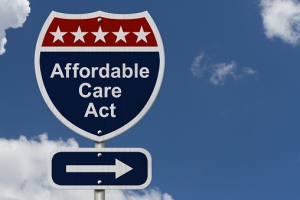ACA
Last year, the Department of Labor (DOL) issued new regulations pertaining to Association Health Plans (AHPs). The rules relaxed previously issued regulations by allowing AHPs to be established for employers who are in the same industry or geographic location. AHPs are regulated like large group health plans which are exempt from some of the Affordable Care Act (ACA) market reforms, including the requirement to cover essential health benefits.
There’s never a dull moment when it comes to the Affordable Care Act (ACA). Some people love the law, some people hate it, and others find themselves somewhere in between. However, there’s one thing that’s for certain. The rules are constantly being challenged or changed. Here are three key developments that occurred last week.
Last Friday, a federal judge in Texas ruled the Affordable Care Act (a.k.a. Obamacare) unconstitutional.
The judge’s decision came in response to a lawsuit filed by 20 Republican state attorneys general earlier this year. The lawsuit was filed after the Tax Cuts and Jobs Act zeroed out the Individual Mandate penalty. The lawsuit claimed the Individual Mandate was so essential to Obamacare, and without it, all of Obamacare must go. The judge agreed.
2018 ACA Reporting Requirements
The Internal Revenue Service (IRS) has released draft versions of the forms and instructions for the 2018 reporting year. The reporting, which is required under the Affordable Care Act (ACA), helps the IRS enforce the Individual Mandate, Employer Mandate and verify subsidy eligibility for individuals who obtain coverage through the Health Insurance Marketplace.
The midterm elections will be held on November 6, 2018, and the Affordable Care Act (ACA) will surely be a hot topic on campaign trails. Republicans are expected to continue down a path of conveying their belief that the ACA is ineffective and has driven up healthcare costs. Democrats are expected to point out consumer protections that are included in the ACA, such as coverage for pre-existing conditions and essential health benefits.
The Internal Revenue Service (IRS) has revised its frequently asked questions (FAQ) information pertaining to the Employer Mandate. More specifically, the IRS has confirmed that an employer who provides coverage through an association health plan (AHP) has no relevance to the Employer Mandate. An employer isn’t dragged into the Employer Mandate requirements simply because they provide coverage through an AHP. Only employers with 50 or more full-time equivalent employees in the prior calendar year will be subject to the Employer Mandate. Question and answer #18 from the FAQ is shown below.
Many of you are familiar with the reinsurance fees that were charged to health insurance plans from 2014 to 2016, but you may not be as familiar with the risk adjustment program. The risk adjustment program was authorized under the Affordable Care Act (ACA). This permanent program is intended to protect against adverse selection and risk selection in the individual and small group markets (inside and outside of the Exchanges).
A lawsuit contesting the legality of the Affordable Care Act (ACA), also known as Obamacare, is starting to gain a lot of attention. Last December, the Tax Cuts and Jobs Act was signed into law. Part of this law made the penalty under the Individual Mandate $0 starting in 2019. Technically the Individual Mandate is still in place, but there will no longer be any penalty under federal law for failing to health insurance.
The Tax Cuts and Jobs Act signed into law last year wiped out the federal penalty for not having health insurance (a.k.a. the Individual Mandate) starting in 2019. Some state officials are concerned that the elimination of the penalty could destabilize their local insurance markets, and they have responded with their own Individual Mandate requirements.
Benefits Buzz
Enter Your Email









